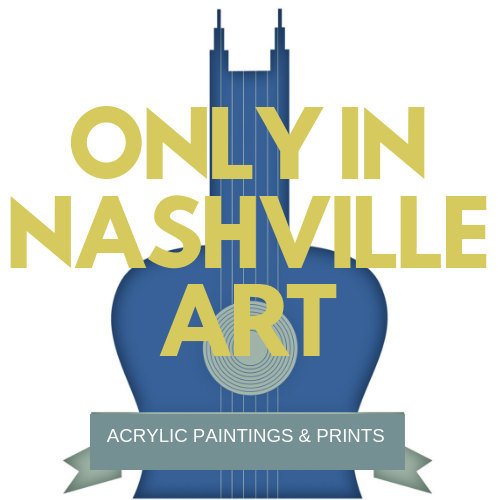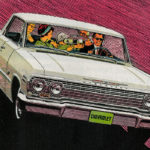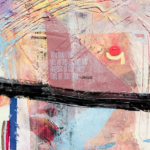The life trajectory of a son or daughter is no natural arc. More like a maze. Even so, the ideal model of child and parent relationship is traditionally plotted as linear. Education begins at birth. Parents teach us the basics. How to communicate. How to walk upright. From our parents, we learn hot and cold, right and wrong, yes and no. It’s not all binary and didactic though. A large portion of what we learn is at the tacit level. Year after year, this tacit knowledge takes root in that deep space within us where the words to describe what we know often evade us.
Along this same timeline, we’re educated by others, paid instructors teaching us everything from Spanish to concert band and physics. All the while, we’re learning to interact with each other and our world.
While all this learning is taking place, our brains and bodies are changing dramatically, incrementally preparing us for a life we will make on our own apart from our parent’s watchful eyes and helping hands. The general, hopeful goal is that we will run the gauntlet from birth to adult in such a way that we love and respect our parents, make the most of our gifts and talents, become makers, not takers, love our neighbors, and work and play as vibrant, contributing citizens of the planet. No small ask.
Thankfully, many people do make it to this good end. How they get there though, is never a flat, straight line from birth to roses at the finish. Some among us are born into challenging circumstances radically different from the hopeful goal described above. Not all of us are born healthy or stay healthy as children. Some suffer trauma at a young age, and so the brain develops in uniquely unhealthy ways.
Some children are orphaned, adopted, or born to a single parent. Some of us, through foster care and institutions, have had many parents or guardians. The point being, every person’s story is unique, meaningful, and never neutral. No one gets to adulthood without a past.
This same truth applies to our parents, or guardians, and their family of origin and life trajectories. Like us, their past is dense with the data of being human. Consider that some were born into great wealth. Others, poverty. Some fought in wars or suffered famine. They all have their talents, secrets, unarticulated hopes, achievements, gut-wrenching sorrows, pride, and much more. It’s out of this complex stew of experience that they parent us.
I suspect that most of us recognize our parent’s full humanity too late in the game. They’re no longer alive, or their memories and mental acuity are failing. And I’m not talking about, “Let me set you straight, I know very well how human they are (or were).” Naming grievances, or what I think was wrong with my parents, is too easy. Plus, I’m already really good at it – no more practice needed. But seeing them as fully human? I missed that chance while they were alive.
I wish I could’ve known my parents without all the biases I accumulated along the way. I constructed truncated identities for them without ever knowing I was doing it. Then, for the whole of life, I kept them bound to the caricatures I’d created. This doesn’t mean that I didn’t learn anything of depth about them, or occasionally see them in some new and positive light. Because I did. And I also have the memories of how open-hearted, generous and funny they both could be. They were stellar grandparents too. When we told them we were moving to Nashville, they were unwavering in their support. When it was time to build a recording studio, they advanced us the money (which was nearly their entire savings).
And then, without any warning, my dad was gone, all too young at fifty-nine. Thankfully, my mother lived into her eighties and just recently passed away.
When your parents are gone, you can’t compare notes anymore, empathize with each other, unravel mysteries, put words to the unspoken thoughts and feelings, show complete transparency, or forgive and be forgiven. You can’t champion each other. You can’t ask them about their freshman year of high school, whether it embarrassed them that their teeth were so crooked, or why they quit drawing when they were obviously so good at it. The opportunity for such things has passed.
I failed my parents in ways I deeply regret. So, in the most basic sense, there is a son I wish I’d been – one more faithful, attentive, kind, and loving. In another, more abstract sense, there is a son I wish I’d been which was impossible for me to be while they were alive. I was incapable of the necessary curiosity and empathy to be that son. Nor did I possess the mental health needed.
Today, as a sixty-three-year-old man, I’m ready to be the son who asks his parents about everything, who ferrets out every story. I’m prepared to do this and feel no pressing need to illuminate for them what I’ve thought, felt, believed, valued, and accomplished. My need to honestly know them is far greater than my need to be seen and understood. Maybe this is how you find out you’ve finally grown up.
For most of my teens and adulthood, the time I made for my parents was superficial and transactional (which is not uncommon for teenagers). There were seasons when I interacted with them as little as possible. It was a means of survival or a dodge from shame. Always, I was limited in love and curiosity by my own self-absorption.
Unfortunately, when I should have been enjoying the last years of my childhood, my focus as a teenager was on premature independence, creating a life I could have authority over, and distancing myself from my parents. Later, at a significant turning point in young adulthood, I got busy being responsible, making a name for myself and eventually being successful. Making a name for yourself is a time-sucking, endless task though. Relationships (parents or otherwise) get wedged into breaks in the action. That’s it. They’re not the plot.
In the two years since my mother passed, I’ve had the opportunity to process the last vestiges of my parent’s lives. Through journals, letters, artwork, report cards, receipts, yearbooks, and more, Mom left us a well-organized history of their own childhoods and marriage. Not too much stuff. Just enough. Not all of its new information, but I see it all in a new way.
Now I’m able to see each of my parents as someone’s child and grandchild, as young adults struggling to make life work at the most basic level, and as a married couple with bright seasons, dark storms and their inescapable histories.
The more I understand my parents as people, as I would a friend or neighbor, the more empathetic and forgiving I become toward them. I can see the known or probable source for just about anything I didn’t like about them or respect them for. I can see the connections between the pain they caused me and the pain they endured.
For example, several years after my musician father passed away, my mother told me something very significant. She said, “You know, your dad never had any encouragement from his father regarding music, and so he had no example of how to be with you.”
There was a forty-year period when I really could’ve used this information. That one sentence both wrecked me and made sense of so much of my relationship with Dad. It helped me to see him as a boy who wanted his father to take notice of him, to see what a good musician he was becoming. Dad became the best in high school. Then he joined the Air Force and got paid to play in the jazz/dance band. He came back home, formed a group, and got to work playing clubs and dances. Mom had a degree. Now it was Dad’s turn. He went to college and earned a music degree and was immediately hired as the band director at a local high school.
Now he had a steady salary plus the extra money coming in from gigs every weekend. Confidently, he went right out and bought a brand new 1963 Chevrolet Impala. The first thing he did with that car was to load the family up and drive directly to his parent’s house. At that moment, showing off a shiny new car his father couldn’t afford, Dad could’ve asked of him: “Do you see me now?”
In contrast to the circumstances I was born to, which were modest, my parents came from far less. It’s why they valued so much of what I took for granted, even dismissed as unnecessary. I failed to appreciate how much they’d achieved. It was their labor that allowed me the space to have improbable dreams.
I’d always been a kid that had something in him that needed to come out. I was headed somewhere, out on the horizon, past the predictable, into the freedom and surprise of the unknown.
Dad knew how much work it took just to get where he got. Where I wanted to go was beyond his ability to see.
So I proved him wrong, showed him how it was done, and brought my personal version of the Chevrolet Impala to his doorstep, over and over again. No habit has been harder to kick than this one – even decades after his death. It took so long to wind it up, it’s taking equally long to unwind.
On November 16thof 1971, when I was fifteen, I wrote in my journal: “Most of my day revolves around music in some sort, and it gets to be old after a while, and then it will have some good points too. Sometimes I feel it’s time for a day off from band, but I just have to keep pushing. I assume they expect it of me.”
By grace, I’ve been given time and the means to kick the habit. Trials and failures have helped me let go of the son I was, making it possible for me to be the son I wish I’d been.
As that son, I release my parents to be human, two of God’s image-bearers, historical figures with complicated stories, forgiven and admired. I pass no further judgment. Rest in peace.
I can say, for the first time, I finally love them, truly love them.
SPOTIFY




Charlie,
Absolutely beautiful. I certainly resonate with seasons of your journey. Also in my 60’s, I take time to reflect and re-reflect on family episodes. Funny how they look differently from when I looked back at the same episodes while in my 40’s and even my 50’s.
Keep sharing your journey!
Paul Tokunaga
Charlie – I experienced one of those losses last week and thru the tears I say thank you for sharing! Perspective grows over time and experience!
This wasn’t merely a blog post or a podcast, this was a journey. The story in itself was compelling, but the soundtrack underneath sure drove it home. It has left an indelible mark on my soul. Painful/Beautiful/Healing.
This is a testimony that there IS a soothing salve for the Merthiolate* burns of childhood. Thank you for leaving this here Mr. Ashworth Charlie Peacock, Something so healing about the feeling you are not alone on the road.
* Merthiolate was a stinging, burning, topical antiseptic made of (toxic) mercury salts, used to clean and treat scrapes and cuts by well-intentioned Depression and WWII era parents, from which Boomer era children learned very early to conceal injuries and pain. Similarly, for many, inner hurt and pain are hidden in our depths.
Thank you Chuck for you honest heartfelt writing. You are such an inspiration to us all.
God’s Blessings and Love
Timely podcast, as I lost my father this past May. I have many regrets as a son and I have as you said, failed to acknowledge his humanity, creating a biased view of him. Thank you for insight and encouragement.
Charlie,
Thanks for the beautifully poignant Post, “The Son I Wish I’d Been.” It touched a deep wound. I too, lost my Dad while in his early 50’s. Your words led me to a time of healing and peace. I was always proud of my Dad and his service during WWII. I can now say how very proud I am to be his son and bear his name.
Bless you,
Buz
This is beautiful and moving. Having recently become a grandpa at age 48, and having my own share of challenges in my relationship with my parents and my kids, I find deep resonance in what you’ve written here. Thank you.